Environment
-
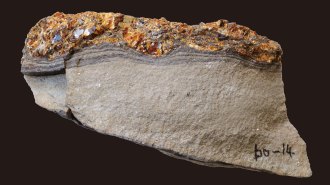 Oceans
OceansSeafloor amber may hold hints of a tsunami 115 million years ago
Oddly shaped deposits of tree resin point to massive waves that struck northern Japan roughly 115 million years ago and swept a forest into the sea.
-
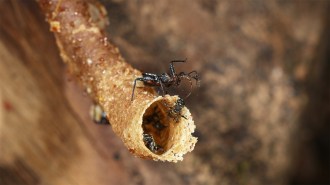 Animals
AnimalsThis tool-wielding assassin turns its prey’s defenses into a trap
This assassin bug's ability to use a tool — bees’ resin — could shed light on how the ability evolved in other animals.
-
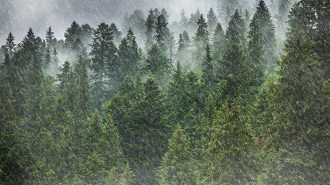 Environment
EnvironmentSkyborne specks of life may influence rainfall patterns
A study of weather on a mountain in Greece reveal that bioparticles in the sky may drive fluctuations in rainfall patterns more broadly.
By Nikk Ogasa -
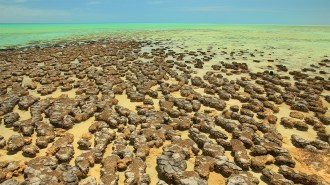 Oceans
OceansBefore altering the air, microbes oxygenated large swaths of the sea
Hundreds of millions of years before oxygen surged in the atmosphere 2.4 billion years ago, swaths of oxygen winked in and out of existence in the ocean.
By Nikk Ogasa -
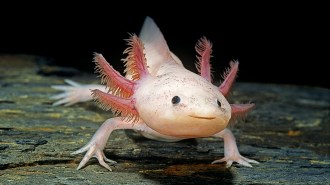 Animals
AnimalsThe axolotl is endangered in the wild. A discovery offers hope
Introducing captive-bred axolotls to restored and artificial wetlands may be a promising option for the popular pet amphibian.
By Anna Gibbs -
 Physics
PhysicsHere’s how we might generate electricity from rain
Water drops produce electricity when dripped through a small tube. That power might be harnessed as renewable energy in rainy places.
By Jude Coleman -
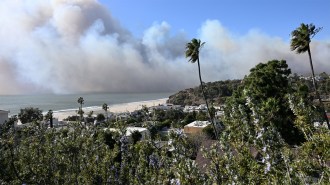 Oceans
OceansHow will the LA fires affect the ocean? These researchers are racing to find out
Scientists aboard a research vessel near Los Angeles collected ash, air and water samples as fire blazed on the hills before them in January.
-
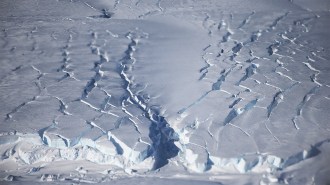 Climate
ClimateHidden Antarctic lakes could supercharge sea level rise
An overlooked Antarctic water system could raise sea levels by more than 2 meters by 2300, computer simulations show.
By Nikk Ogasa -
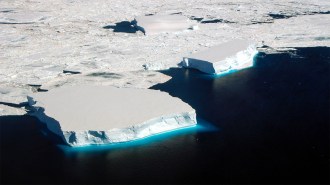 Environment
EnvironmentFires in the Amazon forest may melt sea ice in Antarctica
Satellite data reveal a link between the amount of black carbon in the atmosphere and rates of Antarctic sea ice loss in recent years.
-
 Climate
ClimateA lush, green Arabian Desert may have once linked Africa and Asia
Mineral formations in caves reveal recurring periods of humidity in the Arabian Desert over the last 8 million years.
-
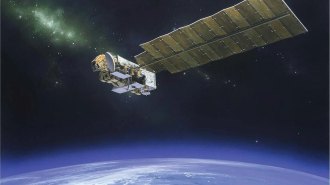 Earth
EarthThe ozone layer shields life on Earth. We’ll soon lose a key way to monitor its health
Imminent loss of NASA's Aura and Canada's SCISAT will severely diminish scientists’ ability to monitor ozone-depleting substances in the stratosphere.
By Nikk Ogasa -
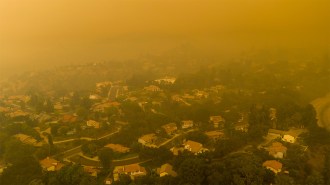 Earth
EarthWildfires and farm fertilizer use are fueling ozone pollution
Fires and agricultural soils can rival cars and factories in emitting chemicals that lead to ozone, making it hard to meet air quality standards.